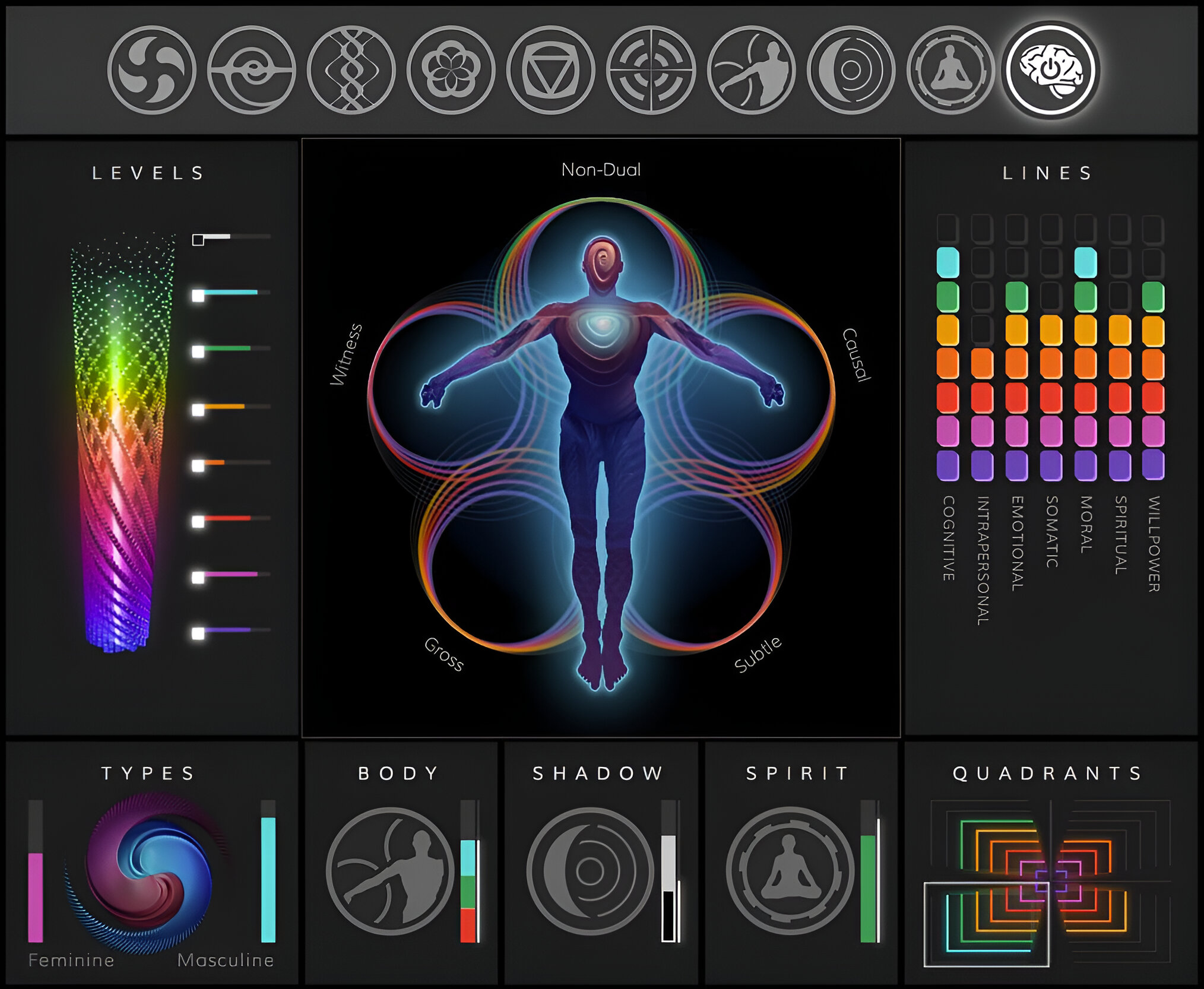🧘🏻♂️ a meta-system for modular self-development & interoperability across philosophies, methodologies and perspectives
sub-title: approaches to self design, self as a system, encoded philosophy, integral spirituality and conscious life operating systems.
the contents of the writing below are currently haphazard, disjointed and all over the place. please proceed at your own risk. (or don't. feel free to come back later when it'll be hopefully updated and improved.)
1) mapping approaches to spirituality and self-transformation
these topics can be very emotionally challenging, so i'll do my best to tread them carefully. i ask you read it in good faith and to assume it on my part as well.
if we compare the propositions of different wisdom traditions, scientific discoveries and psychological studies, we see that they're actually not thaaat different. there's a lot of agreement among them.
there are definitely irreconcilable differences that we can focus on, but we can find ways in which many of the differences can actually be complementary as well.
tbprocessed/evernote/0 - inbox/ken wilber has done a lot of this comparative work across traditions and modern science/academia already. and many people have been building upon it:
jamie wheal on recapture the rapture, barbara marx hubbard on conscious evolution, marc gafni on unique self, john vervaeke on religion that is not a religion, psychotechnologies and distributed cognition, and the meaning crisis as a whole. (i love their works and recommend all of them)
i have been slowly joining forces with my good friend marcelo peterlini as part of the mettatropical collective, who has also been doing his own research and perspectives on the mettacrisis, as well as daniel thorson with the church of the intimate web, which also features a synthetization of a lot of powerful perspectives.
plus, there are a lot more curators/practitioners such as eric brown hedonic engineering: building a psycho-spiritual growth stack, euvie ivanova on psycho-technologies for the age of collapse, layman pascal, (...), adding to it.
all of these share an aim to be multi-perspectival, integrative approaches to self-transformation and spirituality, but i'm sure there are many more that hold valuable pieces of wisdom.
possibility management with thoughtware upgrades, sadhguru with self-engineering, and many others to be discovered...
my proposal is: if we start with the intersection of "broadly acceptable" beliefs/practices across these different philosophies and traditions, we can work with what we have - cultivating trust, love, understanding and intimacy - and slowly expand into the more complex, nuanced, inflammable territories.
is coordinating different perspectives even possible?
depending on who you ask, the answer will vary greatly. some might say that politics, for example, shows that it's a resounding no. while others will say that politics, for example, shows that it's a resounding yes. ironic, huh?
the meaning alignment institute and goodly labs are two examples of institutions doing a great job using technology to coordinate varying perspectives. in their practice, they're finding that very often they're able to reach a higher-order synthesis/resolution that qualitatively feels better for people on both sides of the spectrum.
(the spiritual traditions we mentioned before definitely will have some things to say on the nature of polarity as a way to find balance/harmony as well 🙃)
there are many people working on mediation, reconciliation, facilitation as a whole, and we might even say that governance is fundamentally about that. i'll dive more into this on my next article (💭 foundational concepts for developing regenerative information ecologies & empowering knowledge commons), but the society library is another example of a technology-proposing institution facilitating deeper levels of dialogue/sensemaking with their argument maps.
[...]
we can be forever seeking "who has/what is the more comprehensive/coherent/whole approach". so i believe this is more of an individual unfoldment path. the point here isn't to propose a definitive answer, but an evolutionary one.
how might we shift our way of evaluating a metaphysical or axiological system, not only by their epistemological rigour/approach but also by considering, for each individual: "what works now, in service of what's in my reach, that can support me to continually grow my wisdom and horizon of care?"
we all came here with different missions, needs, talents and challenges. and while "all paths lead to the tao", not all are equally valuable.
the age-old challenge of self-transformation is as much a work of design as of discovery and deconstruction (tbprocessed/evernote/0 - inbox/ken wilber's model of the four facets of integral development do a great job of explaining it in terms of: waking up, growing up, cleaning up and showing up).

let's take the AQAL map - an integral theory consolidation - as a starting point (the dashboard above). any new discovery becomes just another "tab" or "widget" there, that opens up a whole new rabbit hole of discovery and investigation.
-> why integral is so powerful: it provides as close to an agnostic stance as possible (or at least that i've seen) to integrate perspectives and practices. it provides a way of indexing, interpreting and categorizing spiritual (and more - psychological, sociological, scientific) experiences.
if we break down some of the core self-transformation processes, there are: consciousness development itself (states & stages), psychological development, learning, lines of intelligence, trauma, intimacy development, shadow work, parts work, flow states, non-ordinary states of consciousness, etc...
i favor a modular approach. you don't need to agree with the complete worldview of a certain approach, practice or tradition, but you can practice/experiment with it and develop more depth over time. the point is to gradually explore, learn and incorporate what makes sense for you into your personal systems.
gamers are usually familiar with this idea since they're often tweaking their games with DLCs or mods.
a meta-systemic approach
[...]
your life operating system
in nerd terms: epistemology, metaphysics, ontology, ethics/axiology & aesthetics.
the set of beliefs, values, conditionings with which you operate in life.
[...]